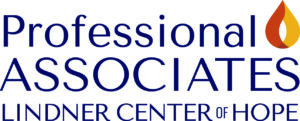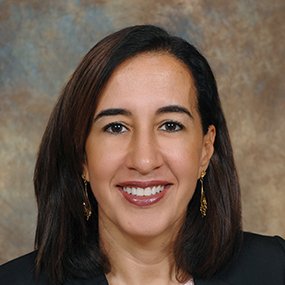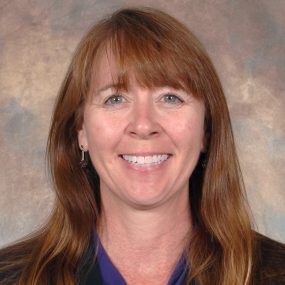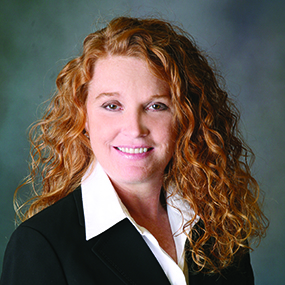Depression and Bipolar Disorder
Depression and bipolar disorder, also known as mood disorders, are common. About one in 10 Americans suffers from a mood disorder. Mood disorders can be complex and challenging to treat, especially when complicated by the presence of another mental illness or addiction, commonly referred to as a co-occurring condition. But leading researchers and clinicians at Lindner Center of Hope offer the knowledge, wisdom and experience to treat mood disorders and other co-occurring conditions.
Download the Landmark Depression and Bipolar Disorder Program brochure here.
Levels of Care for Addressing Depression and Bipolar Disorder
The successful treatment of depression and bipolar disorder correlates to being able to meet the patient where they are. Effective care is delivered to address the level of complexity and severity of illness. Lindner Center of Hope has developed a full continuum of care, offering options that can aid patients in reaching recovery and remission and sustaining symptom improvement.
While each mood disorder is distinctly different, all are highly treatable once they are correctly identified. A complete and accurate diagnostic is the first step in managing a mood disorder. While symptoms can range dramatically, a history of mood disorders in the family and frequency of episodes can be a predictor. Early diagnosis and intervention can improve treatment outcomes.
The clinicians and researchers at Lindner Center of HOPE are internationally recognized for their ground breaking work in understanding and treating mood disorders. Learn more about the symptoms and behaviors associated with depression, bipolar disorder and other mood disorders:
Pediatric Symptoms
Have you noticed behavioral or emotional changes in your child?
See if he or she needs help.
Teen Suicide
Suicide is a serious problem among young people.
Learn the facts about teen suicide.
Depression and You
Learn the symptoms and signs of depression.
Seek help today.
About Bipolar Disorder
Learn about the symptoms and behaviors associated with bipolar disorder.
Learn the facts about bipolar disorder.
Causes of Depression, Bipolar and Mood Disorders
Although researchers are still determining the exact causes of depression, bipolar disorder and other mood disorders, most believe that mood disorders may result from a complex interaction of genetic, medical, psychological and psychosocial factors.
- Possible Genetic Factors
- Immediate family member with a mood disorder
- Twin with a mood disorder
- Neurochemical and biologic alterations in several genes
Possible Medical Factors
- Side-effects from specific medications
- Medical conditions
Possible Psychological and Psychosocial Factors
- Dramatic life events and environmental stress
- Sexual abuse in childhood
- Faulty or negative thought patterns
- Early childhood loss and difficulties with attachment
Progressive, proven treatment is available through Lindner Center of HOPE where an experienced team can accurately diagnose and treat a variety of mood disorders. These include major depressive disorder, dysthymic disorder, bipolar disorder, seasonal affective disorder (SAD), psychotic depression, postpartum depression, and other mood disorders.
Individualized Treatment Options for Depression and Bipolar and Mood Disorders
At Lindner Center of Hope, patients directly benefit from research led by expert clinicians — Paul Keck, Jr., MD, and Susan McElroy, MD. Their work has advanced what is known about depression, bipolar disorder and other mood disorders, leading to more productive and effective care.
The team of expert psychotherapists, researchers, and clinicians works collaboratively to diagnose mood disorders and any other co-occurring conditions. Because mood disorders can be complex, a thorough and accurate assessment is the foundation for treatment. What follows is a custom treatment plan designed to help patients better manage their conditions.
Patients can receive treatment for major depressive disorder, dysthymic disorder, bipolar disorder, seasonal affective disorder (SAD), psychotic depression, postpartum depression, and other mood disorders.
A Compelling Approach to Therapy Equips Patients with Tools to Succeed
To effectively treat depression, bipolar disorder and other mood disorders, clinicians use a carefully developed blend of therapy proven to deliver the best outcomes. Therapies teach patients how to manage symptoms and behaviors to enable productive, rewarding lives:
- Psychiatrists who understand the function of medications in acute and long-term treatment provide a balance of Insight Oriented Therapy (IOT) sessions and medication management.
- Insight Oriented Therapy (IOT) – Clinicians work with patients to improve self-awareness and identify behavior patterns by evaluating how past events impact thoughts, feelings and behaviors that have led to difficulties with moods and relationships. For many people, these insights can lead to positive changes in how they cope with stress in their life and can reduce and maintain the reduction of depressive symptoms.
- Medication Management – The staff understands how to effectively use medications for acute and long-term treatment. They are adept at calibrating medications and adjusting to patient needs.
- Psychologists use Cognitive Behavior Therapy (CBT) and one of the most current, scientifically proven treatments — Dialectical Behavior Therapy (DBT) — to support patient recovery and long-term wellness.
- Cognitive Behavioral Therapy (CBT) – This progressive therapy helps identify and challenge a patient’s negative thought patterns and encourages behaviors designed to counter-act depressive symptoms. Learn about CBT vs DBT.
- Dialectical Behavioral Therapy (DBT) – This differentiating approach to treatment helps patients develop strategies to manage quick and strong fluctuations in emotions. No other facility in the greater Cincinnati area offers more expertise in DBT than the Lindner Center of Hope. Clinicians trained to use DBT support the development of skills and mindfulness, interpersonal effectiveness, distress tolerance, and emotion regulation. These skills assist patients in avoiding extreme behaviors that limit the ability to function and encourage change to a more successful and fulfilling life.
- Integrative Mental Health – The field of Integrative Mental Health considers other reasons for depression, such as an altered microbiome, chronic inflammation, hormones, mitochondrial dysfunction, dietary sensitivities, genetic mutations, and the role of neurogenesis. Integrative Mental Health focuses on the whole person in order to promote recovery as holistically as possible from a mental health diagnosis.
At the Lindner Center of Hope Integrative Mental Health programming includes genotyping that enables the detection of the MTHFR genetic mutation, and treat accordingly. Micronutrient, thyroid, and metabolic testing is also offered with appropriate recommendations on diet and lifestyle changes.
- Social workers educate patients and their families as well as provide support throughout treatment.
- Family Therapy, an inclusive approach to education and therapy, assists the patient and supports the family.
Premier Assessment and Residential Programs
Learn about the different levels of care for mood disorders at Lindner Center of Hope:
- Inpatient Treatment
- Outpatient Treatment
- Partial Hospitalization
- Electroconvulsive Therapy (ECT)
- Transcranial Magnetic Stimulation (TMS)
- Residential Programs
- Research Studies
Outpatient Care
 Most patients with mood disorders can be treated effectively on an outpatient basis. Comprehensive outpatient services guided by experts in the clinical practice group, Lindner Center of Hope Professional Associates (LCOHPA), establish an individualized program using a combination of the newest protocols and proven techniques. With cutting-edge research conducted onsite by members of the treatment team, patients directly benefit from new and emerging knowledge related to mood disorders. Patients and their families also participate in meaningful individual or family therapy while maintaining normal life activities.
Most patients with mood disorders can be treated effectively on an outpatient basis. Comprehensive outpatient services guided by experts in the clinical practice group, Lindner Center of Hope Professional Associates (LCOHPA), establish an individualized program using a combination of the newest protocols and proven techniques. With cutting-edge research conducted onsite by members of the treatment team, patients directly benefit from new and emerging knowledge related to mood disorders. Patients and their families also participate in meaningful individual or family therapy while maintaining normal life activities.
Who Benefits
- Children, teens and adults with mood disorders who are able to participate successfully in regularly scheduled outpatient visits on their own or with family or support individuals
- Patients who can work closely with a multidisciplinary team to overcome the challenges of mood disorders
Inpatient Treatment
Inpatient treatment focuses on quickly resolving serious and life threatening symptoms. The treatment team leverages medication management and supportive psychotherapy in a safe, structured environment. With cutting-edge research conducted onsite by members of the treatment team, patients directly benefit from new and emerging knowledge related to mood disorders.
Who Benefits
- Adults who are struggling with mood disorders
- Patients who need a more intensive, focused treatment environment for stabilization
- Patients whose symptoms are severely disabling or if there is a risk of harm to self or violence to others
Partial Hospitalization for Adults
Lindner Center of Hope is committed to providing the full spectrum of care for adults suffering with mental illness. When an adult’s daily functioning is impaired by mental illness, yet criteria is not met for hospitalization, the Adult Partial Hospitalization Program (PHP) provides intensive treatment in a safe and therapeutic environment, without full hospitalization. Partial hospitalization helps patients progress to the point where standard outpatient appointments can be effective. This program is also used as a step-down program from hospitalization, with the intent of gradually easing an adult back into their home environment.
The program operates Monday through Friday from 8:30 a.m. to 4:30 p.m. and enrollees attend 5 days per week for up to 4 weeks. The program offers some flexibility in design, so that the PHP treatment team and the enrollee can work together to create the right treatment plan for each individual.
Who Benefits
- The Adult Partial Hospitalization Program (PHP) at Lindner Center of Hope benefits individuals, ages 18 and older, who are experiencing emotional or behavioral issues significant enough to affect daily functioning or quality of life. Patients may be suffering with diagnoses including, but not limited to:
- Mood disorders, such as depression and bipolar disorder
- Anxiety disorders
- Eating disorders
- Adjustment disorders
- Thought disorders not requiring hospitalization, such as paranoia and hallucinations
- Patients who need a more intensive, structured program than traditional outpatient visits can provide
- Patients who may not require hospitalization, but who may benefit from hands-on intensive day-long therapy without requiring an overnight stay
- Patients transitioning from hospitalization who need on-going, intensive care
Learn more about partial hospitalization for adults here.
Additional Therapies
Lindner Center of Hope has successfully treated recurring and treatment-resistant (or treatment-refractory) mood disorders using safe, effective, FDA-approved protocols, such as the promising Transcranial Magnetic Stimulation (TMS) Therapy or the widely used and highly successful Electroconvulsive Therapy (ECT). Both therapies are available at Lindner Center of Hope’s Farmer Family Neuromodulation Center.
Who Benefits
- Patients whose conditions have not responded to other therapies
Premier Assessment and Residential Treatment for Depression and Bipolar Disorder
Lindner Center of Hope’s premier adult assessment and residential services program recognizes the importance of identifying complex comorbidity to improving patient outcomes. In fact, in-depth evaluation and assessment is essential for determining the next steps of treatment of complex comorbidity.
Mental illness, addiction, trauma, OCD, attentional deficits, and more are often complexly interwoven. Every person’s experience and life is also unique. Clarifying or teasing out as many facets of a person’s life as possible through evaluation and assessment can help make an accurate diagnosis and workable treatment plan attainable.
Sibcy House at Lindner Center of Hope is a specialized and enhanced, rich therapeutic residential environment offering stabilizing evaluation, comprehensive diagnostic assessment, and residential treatment programs for individuals age 18 and older, suffering with complex, co-morbid mental health and addiction issues. A renowned, multi-disciplinary clinical team uses state-of-the science technology, evidence-based treatment modalities (including DBT an ERP) and clinical expertise to accurately assess patients, create individualized treatment plans, and provide intensive treatment through individualized and group therapy to improve overall treatment trajectory.
Our residential offerings provide an individualized path to the insights and solutions sought by patients, families, and referral sources. At Sibcy House, we can:
- Evaluate and stabilize presenting issues
- Observe and assess a patient’s functioning through group therapy and therapeutic milieu involvement
- Gather insights through multidisciplinary treatment team rounding and collaboration
- Utilize testing instruments tailored to patient’s specific needs
- Develop comprehensive clinical recommendations and present them in a structured feedback meeting for families, partners, and referrers
Learn more about how Sibcy House addresses depression and bipolar disorder. (https://lindnercenterofhope.org/sibcy-house-adult/)
Research Programs Bring Treatment to the Forefront
The Research Institute at Lindner Center of HOPE, in affiliation with the University of Cincinnati (UC) College of Medicine, conducts research to better prevent, diagnose and treat common mental illnesses, including mood disorders such as depression and bipolar disorder. Typically it can take up to 17 years before research findings become fully integrated into routine diagnostics and treatment. However, at Lindner Center of HOPE, research informs patient care each and every day.
That’s because two of the most frequently cited researchers in mood disorders and co-occurring conditions — Paul E. Keck, Jr., MD, CEO, and Susan L. McElroy, MD – have created a research-driven, landmark program for the successful treatment of mood disorders. Their team of clinical researchers has brought six pharmaceuticals to the market. Collectively, the team has published more than 800 research papers on the subject of mood disorders. They also work extensively with other leading research facilities around the country.
In addition, Lindner Center of HOPE is one of a handful of contributors to Mayo Clinic’s international Bipolar Biobank, a research resource that improves studies done on bipolar disorder. The Center is also one of ten sites chosen for a bipolar study granted by the National Institute for Mental Health (NIMH).
Nationally and internationally regarded clinician-scientists at the Research Institute work in collaboration with top investigators at the University of Cincinnati College of Medicine and other leading academic research institutions around the country.
Our clinician-scientists have published over 800 scientific articles, received over $15 million in grants at UC, and $2 million in grants since opening. Lindner Center of HOPE researchers have been instrumental in bringing six new drugs to market for depression and bipolar disorder for improved therapeutic efficacy and safety.
As charter members of the National Network of Depression Centers (NNDC), the Research Institute at Lindner Center of HOPE plays a leading role in fostering breakthroughs in the field of mental health, while contributing to information sharing and rapid translation of new treatments into clinical settings of the network’s members nationwide.
In addition, the Research Institute is a member of the Harvard-based Clinical Trial Network.
Current Research Studies
Research in genetics, brain imaging, psychopharmacology and psychotherapy evidence provides new methods and treatments for even the most treatment resistant mood disorders. The staff closely integrates research studies into proven, multidisciplinary programs to benefit patients and further treatment. Patients interested in participating in specific studies apply through Lindner Center of HOPE.
Visit the Research Institute page for more information about current studies.
Global Experts in Mood Disorders Lead Treatment
Specialists at Lindner Center of HOPE are internationally recognized for their leading research, advanced training and proven results in identifying and treating basic and treatment resistant mood disorders.
Team members with extensive experience in treating mood disorders work collaboratively to accurately assess and treat a variety of mood disorders. They oversee:
- Individually tailored treatment which combines Dialectical Behavior Therapy (DBT), Insight Oriented Therapy (IOT), and Cognitive Behavior Therapy (CBT) to support patient recovery and long-term wellness
- Family therapy, an inclusive approach to education and therapy designed to assist the patient and support the family
- Psychiatric medication evaluation and treatment
Each patient’s multidisciplinary treatment team may also include the following healthcare professionals:
- Primary Care Physicians
- Masters or Doctoral-level Therapists and Psychology Interns
- Social Work Staff
- Registered Nurses, Licensed Practical Nurses and Mental Health Specialists
- Employment Specialist
- Spiritual Care Coordinator
- Community Psychiatric Support Specialist
Lindner Center of HOPE Library: Resources for Mood Disorders
Are you ready to take the next step? Patients suffering from mood disorders and their families can use these resources to better understand the disorder and take the first steps toward treatment and recovery.
Suicide Prevention Hotline (877) 695-6333
DOWNLOADABLE EDUCATION SHEETS
Pediatric Symptoms Checklist
Emotional and physical health go together in children. Because parents are often the first to notice a problem with their child’s behavior, emotions or learning, parents may help children get the best care possible by answering these questions. (Source: © M.S. Jellinick and J.M. Murphy, Massachusetts General Hospital (http://psc.partners.org) English PSC Gouverneur Revisions 01-06-01)
Teen Suicide: Facts for Families
Learn the facts about teen suicide from the American Academy of Child and Adolescent Psychiatry (AACAP).
Major Depressive Episode: Fact Sheet
Learn the symptoms and signs of depression.
About Bipolar Disorder
Learn the facts about bipolar disorder.
Resources for Depressed Adolescents
WEB SITES
Adolescent Depression Awareness Program (ADAP)
American Psychological Association
Depression and Bipolar Support Alliance
National Institute of Mental Health: Depression
National Institute of Mental Health: Bipolar Disorder
My Mood Monitor™
A three minute assessment for anxiety, depression, PTSD and bipolar disorder. My Mood Monitor™ Copyright © 2002-2010 by M3 Information™.
Mental Health Recovery Services of Warren & Clinton Counties (MHRS) – Suicide Prevention, Intervention and Postvention Protocol
National Alliance on Mental Illness (NAMI)
National Institute of Mental Health (NIMH)
American Academy of Child Adolescent Psychiatry
Substance Abuse & Mental Health Services Administration
American Academy of Pediatrics
SAVE – Suicide Awareness Voices of Education
American Association of Suicidology (AAS)
Warren County Educational Service Center
dependentpersonalitydisorder.org
www.topcounselingschools.org/bipolar-disorders/
BOOKS
titles by Miklowitz
ARTICLES
What is Depression?
Depression is more than just feeling down. It is a significant mood disorder that needs to be treated before more serious problems develop.
Teen Depression: How Caregivers Can Help
Teen depression is a serious problem. Learn the signs of depression and how you can help a teenager you love.
Mood Disorders Afflict Adults and Children Alike
Mood disorders affect children, adolescents and adults. This article describes the symptoms of mood disorders, the differences between them in adults and children, and the universally prescribed treatments for both.
Depression Signs Go Beyond Typical Teen Behavior
Adolescents may experience ups and downs as they make the transition into adulthood. If a teen exhibits behaviors beyond typical moodiness, however, s/he may be suffering from adolescent depression.
Depression & mood disorders screening questions
Below is a brief self test that can help individuals determine if they need an evaluation for a mood disorder. However, only a licensed professional in a one-on-one setting can positively and properly diagnose a mood disorder or other mental health disorder.
Please answer yes or no to each of the following:
- Do you have consistent feelings of sadness, loss of pleasure or hopelessness?
- Do you feel consistently irritable or quick to anger?
- Do you feel that life is not worth living or have thoughts to harm yourself?
- Are you experiencing too little or too much sleep or do you feel you can do very well with only a few hours or less of sleep a night?
- Have others told you that you are impulsive and make bad or risky decisions?
- Do you experience you thoughts as moving too fast and jumpy and that others can’t keep up with your thinking?
- Have you had periods of feeling so excited and confident that it felt almost euphoric? If so, did it last or happen frequently over a period of several days?
- Is your work, school or family life negatively impacted by any of the above symptoms?
These questions are intended to help a person recognize if he or she may need an evaluation for a mood disorder. If you answered yes to any of the bolded items, these are indications of a serious mood disorder and you should seek professional assessment immediately. Additionally, if you are experiencing any of these symptoms or if you believe you are struggling with a mood disorder, you may benefit from a professional assessment.
















